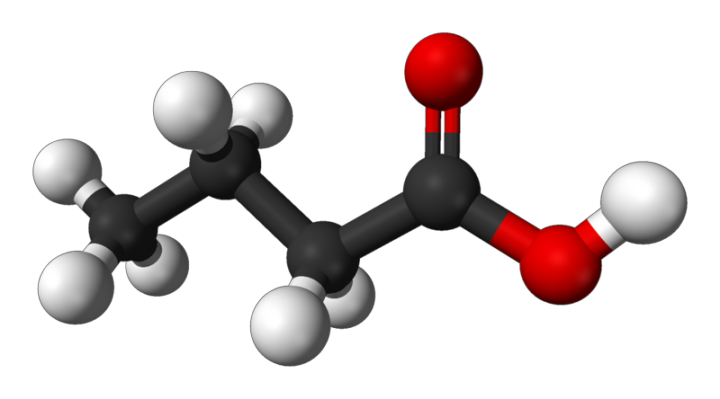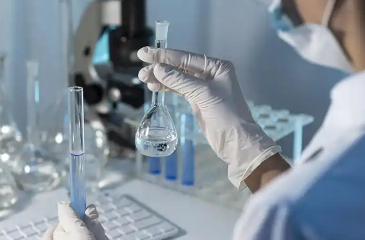Best Natural Butyric Acid: Meet Various Uses
When was the last time you caught a whiff of something that smelled like butter, even though there was no butter in sight? That unmistakable, creamy, slightly tangy aroma could very well be the result of a compound called Natural Butyric Acid. A small yet powerful molecule, it plays an incredibly diverse role across industries, from food production to fragrances to animal health.

But what exactly is this intriguing compound, and why is it so important in various industrial applications? Let’s dive deeper into the world of Natural Butyric Acid, its benefits, and how it impacts different sectors.
What is Natural Butyric Acid?
Chemical Structure and Properties of Butyric Acid
Natural Butyric Acid, scientifically known as butanoic acid, is a short-chain fatty acid with the molecular formula C4H8O2. It boasts a distinctive structure—four carbon atoms, eight hydrogen atoms, and two oxygen atoms—which allows it to function as a versatile ingredient in a wide range of industries. With a molecular weight of 74.08 g/mol and a CAS number of 79-09-4, Butyric Acid exists in both synthetic and natural forms.
Naturally occurring in various foods like butter, cheese, and fermented products, Butyric Acid is responsible for the pungent, yet pleasant, odor that we often associate with rancid butter or certain types of cheese. Interestingly, the word “butyric” comes from the Latin word for butter, “butyrum,” highlighting its strong association with dairy.
The Applications of Natural Butyric Acid
Flavor Enhancement in the Food Industry
In the world of food, Natural Butyric Acid is highly prized for its flavor-enhancing properties. It is a key ingredient in creating a buttery or creamy note in food products, mimicking the taste and aroma of butter without the need for actual dairy. This makes it a go-to solution for food manufacturers looking to enhance the flavor profile of baked goods, dairy-free products, sauces, and savory formulations.
For instance, in baked goods, Natural Butyric Acid can be used to recreate the rich, comforting taste of butter, even in products that are dairy-free or low-fat. Similarly, in dairy substitutes, it helps deliver a more authentic and indulgent flavor, elevating the consumer experience.
Fragrance Development
In the fragrance industry, Natural Butyric Acid is often used to develop rich, fatty, and buttery notes. It adds depth and complexity to perfumes, personal care products, and scented items. The compound works especially well in oriental and gourmand fragrances, where the objective is to create warm, indulgent aromas that evoke comfort and nostalgia. Butyric acid’s role in perfumes is similar to that of a “fixative,” ensuring that the fragrance lasts longer and is perceived as more well-rounded.

Perfume makers value its ability to enrich compositions, particularly in combinations with floral or citrus scents. The acid’s ability to transform a simple fragrance into something more complex and luxurious makes it a sought-after ingredient for high-end fragrance lines.
Industrial Uses of Butyric Acid: Beyond Flavor and Fragrance
Microbial Metabolite and Fermentation
Butyric acid is naturally produced by microbial fermentation, especially during the breakdown of certain foods in the digestive systems of animals and humans. It’s a crucial compound in many fermented foods, where it adds complexity to the flavor profile. Butyric Acid is particularly present in sauerkraut, kimchi, and cheese—delivering its distinctive sharp tang.
In addition to its role in food production, Butyric Acid is also important in animal feed. When used as an additive in feed for livestock, it enhances palatability and improves the digestibility of the feed. This helps animals absorb nutrients more efficiently and supports their overall health and well-being.
Animal Health and Well-Being
Butyric Acid is a prebiotic, meaning it supports the growth and activity of beneficial bacteria in the gut. When included in animal feed, it helps to maintain a healthy balance of gut flora, which is essential for optimal digestion. It also boosts immune function and can improve the growth rates of livestock.
Beyond its digestive benefits, Butyric Acid has also been shown to play a role in reducing gut inflammation, making it a valuable tool in supporting livestock health.
Versatility in Other Industries
While it is most well-known for its role in food, fragrance, and animal feed, Natural Butyric Acid also has a significant presence in other industrial sectors, including pharmaceuticals, plastics, and chemicals.
In the chemical industry, Butyric Acid serves as an intermediate in the production of various chemicals, including plastics and esters. It is used to manufacture a wide array of biodegradable plastics, contributing to more sustainable production practices.
In pharmaceuticals, Butyric Acid is studied for its potential therapeutic benefits, including its role as a short-chain fatty acid that might promote gut health and act as an anti-inflammatory. Its use in drug formulations is still an area of active research, particularly for its potential in chronic diseases like inflammatory bowel disease (IBD).
Why Choose Natural Butyric Acid from UniVOOK Chemicals?
Commitment to Quality
When sourcing Natural Butyric Acid, it’s important to choose a supplier that offers consistent quality and reliability. UniVOOK Chemicals prides itself on providing premium-grade Natural Butyric Acid, which is sourced from high-quality, natural materials. Their product undergoes rigorous quality control measures to ensure it meets the highest industry standards.

Whether you’re a food manufacturer looking to enhance the flavor profile of your products, a fragrance designer seeking to craft a rich, buttery note, or an animal feed producer aiming to improve livestock health, UniVOOK Chemicals ensures that you get a top-tier product that delivers consistent results across diverse applications.
FAQs About Natural Butyric Acid
1. What makes Natural Butyric Acid different from synthetic Butyric Acid?
Natural Butyric Acid is derived from natural sources, such as fermented food products, while synthetic Butyric Acid is produced via chemical processes. The natural version is preferred in many industries because it offers a purer, more authentic aroma and flavor.
2. Can Butyric Acid be harmful?
In low concentrations, Butyric Acid is generally safe. However, in high concentrations, it can have an unpleasant odor and may cause irritation to the skin and eyes. It’s essential to follow safety guidelines when handling the compound in industrial settings.
3. Is Natural Butyric Acid vegan-friendly?
Yes, Natural Butyric Acid derived from plant-based sources is vegan-friendly. However, it’s always important to confirm the source with the supplier if you have specific dietary or ethical concerns.
4. How is Butyric Acid used in pharmaceuticals?
In pharmaceuticals, Butyric Acid is researched for its anti-inflammatory properties and potential benefits in treating diseases like IBD and colorectal cancer. However, its use in therapeutic applications is still largely experimental.
Conclusion
From enhancing flavors in food to adding richness to perfumes and supporting animal health, Natural Butyric Acid is a remarkably versatile compound with numerous industrial applications. Whether you are in the food, fragrance, or pharmaceutical industry, its importance cannot be overstated. Choosing a reliable supplier like UniVOOK Chemicals ensures that you have access to high-quality, natural Butyric Acid that meets the demands of your specific industry needs.
In the ever-evolving world of industrial chemistry, Natural Butyric Acid continues to stand out as an essential ingredient, helping manufacturers create better products that taste, smell, and function in innovative ways.
Access Our Product Catalog and More to Discover High-Performance Chemicals Tailored to Your Business Needs




